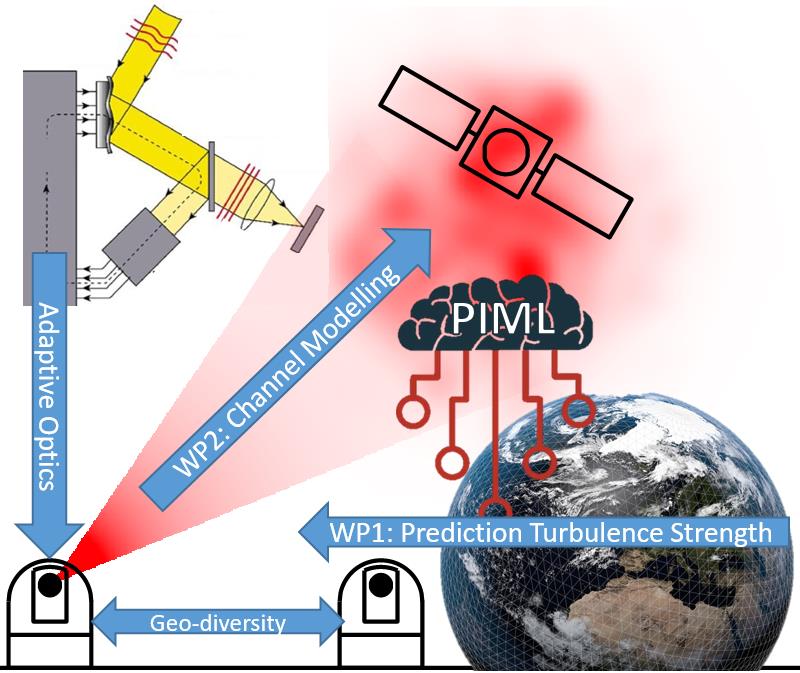Atmospheric Turbulence Informed Machine Learning for Laser Satellite Communications (DAILSCOM)
Themes: Signal processing for communication
Physics-informed machine learning algorithms to formulate the optical link performance map
Laser satellite communications is a promising technology to support worldwide access to telecommunications services. A major technological challenge is atmospheric turbulence impacting the propagation of the laser beams. Its effect can be mitigated by adaptive optics and geographic diversity. The DAILSCOM project aims to provide a map of the effective optical channel performance over Europe. This map is needed to design ground network technology and estimate communications service availability. Since our current understanding and ability to estimate the channel performance are limited, we will develop novel physics-informed machine learning algorithms to formulate the optical link performance map.

Project data
| Researchers: | Justin Dauwels, Geethu Joseph |
|---|---|
| Starting date: | May 2024 |
| Closing date: | May 2028 |
| Funding: | 843 kE; related to group 300 kE |
| Partners: | TU Delft: Fac. AE, Fac. CitG |
| Users: | TNO, ESA, Airbus, Demcon, Miratlas |
| Contact: | Justin Dauwels |